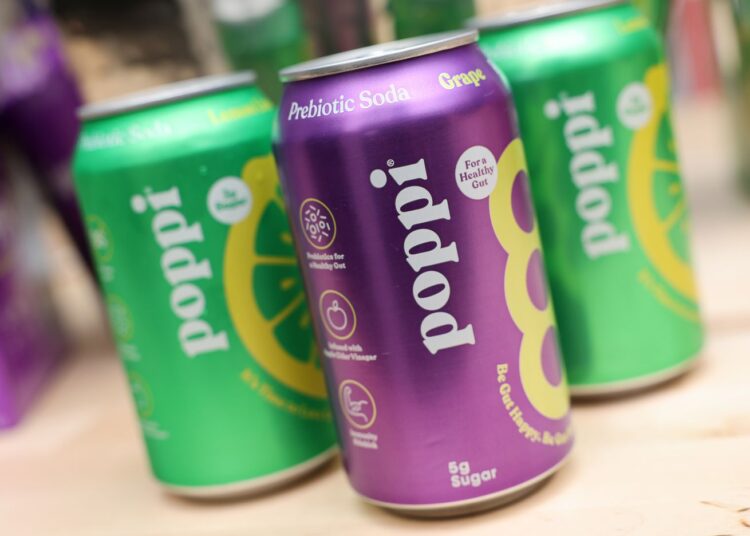Photo by Cindy Ord/Getty Images for SCAD
It’s the latest in a long line of healthier drink acquisitions for the soda giant
This week, massive food and beverage conglomerate PepsiCo announced that it would drop nearly $2 billion to acquire Poppi, the low-calorie, probiotic-infused soda brand that you’ve likely seen on your social media feeds. According to Reuters, the move comes at a time when Pepsi is facing declining demand as customers look to consume less sugar and seek out healthier drinks. And considering the way the beverage industry works, this acquisition was all but inevitable.
Over the past two decades, big soda brands like Coca-Cola and Pepsi have seen soda consumption in the United States and beyond decline significantly as health experts warn about the dangers of consuming too much sugar. As such, these brands have been aggressive in acquiring upstarts in the beverage market. Every time a drink trend with a health halo kicks off, the two mega-corporations appear to swoop in and acquire the most successful of the smaller companies driving the trend, adding an even wider range of beverages to their already massive portfolios.
History bears this out. In 2007, Coca-Cola purchased Glaceau, the company behind the brand Vitaminwater, which was quickly earning a reputation — and scores of fans — as a healthier alternative to both sugary sodas and their diet counterparts. That same year, PepsiCo purchased Naked Juice, a bottled juice brand with flavors like “Green Machine” and “Mighty Mango,” all of which promised a wide range of nutritional and health benefits. In 2009, as the coconut water craze began, Coca-Cola acquired a stake in the brand Zico, which promised to be a healthier and “more natural” alternative to workout drinks like Gatorade. PepsiCo also purchased a coconut water brand, the now-defunct O.N.E., that same year. Then came seltzer-mania: In 2017, Coca-Cola bought the rights to Topo Chico, and PepsiCo bought SodaStream the following year.
Considering the explosive growth of the healthy soda or functional beverage category, which is projected to be worth $2 billion in annual sales by 2029, it’s not surprising that PepsiCo has most recently dipped its toes into these probiotic-infused, stevia-sweetened waters. There’s a lot of money to be made from our culture’s collective anxieties around consuming too much sugar or too many chemicals, especially at a time when the diet industry is booming, and medications that radically curb appetites and impact digestion like GLP-1 inhibitors are also exploding in popularity. In February, Coca-Cola launched its own prebiotic soda, called Simply Pop, that also boasts Vitamin C and zinc to purportedly help boost your immune system.
By purchasing Poppi, PepsiCo is betting on a future in which its marquee offering, the 122-year-old soda that gave the company its name, is an occasional splurge or a weekend treat, not something that you drink with lunch and dinner. In 2025, we need our beverages to be working for us, whether that means bolstering our immune systems or helping our bowels move more smoothly. And even though many experts don’t view beverages like Poppi as especially beneficial — usually, there’s not enough fiber in each can to really make a difference in your guts, and for some folks, that fiber could actually make things worse — that won’t stop companies like PepsiCo and Coca-Cola from using their vast financial resources to capitalize on the trend.














